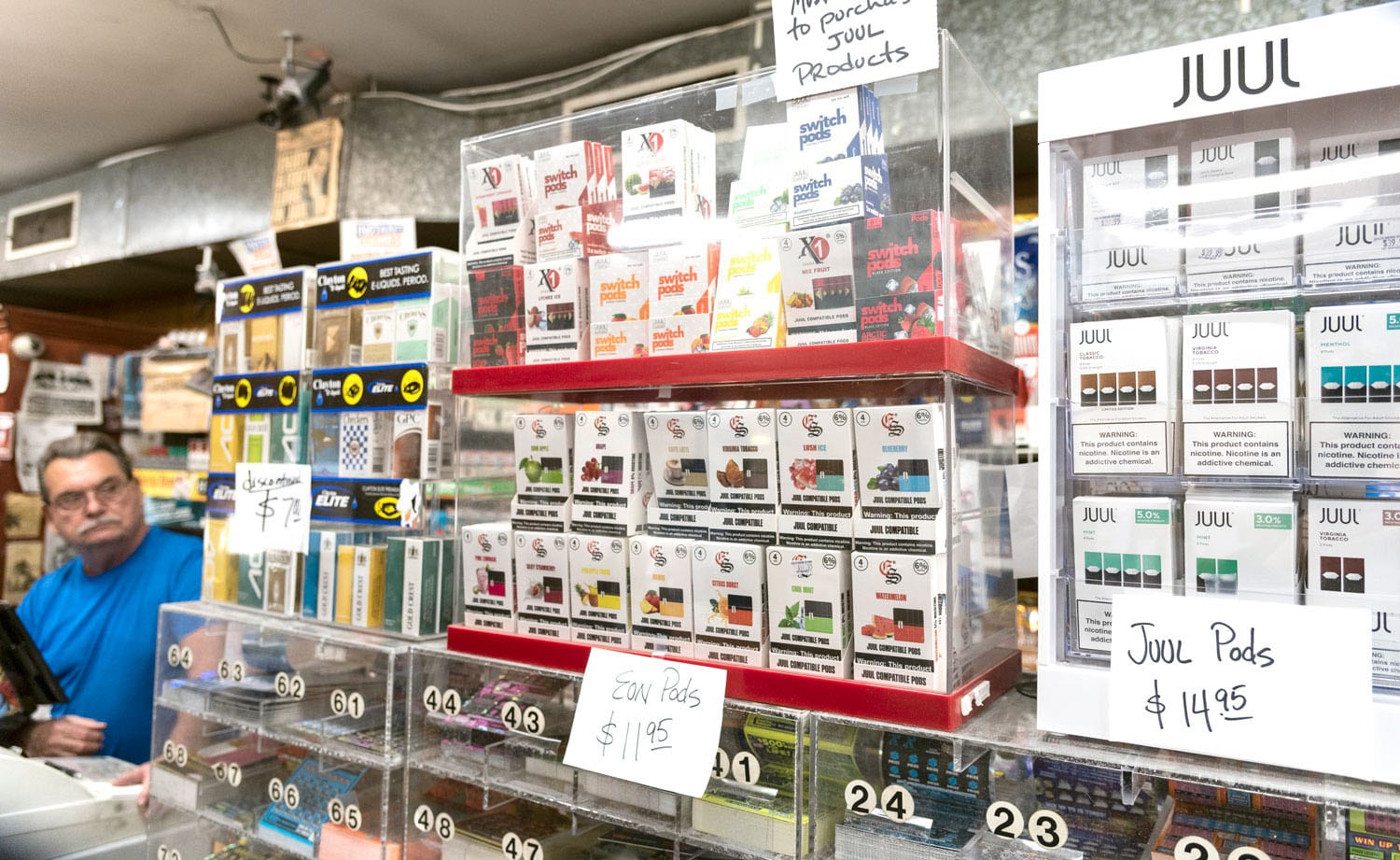LYNN — Convenience store owners are steaming after the Board of Health voted to ban all flavored nicotine and tobacco products from being sold in retail stores on Tuesday night, a move they say will significantly hurt business.
The three-member Board of Health voted unanimously to take all flavored products out of stores and restrict them to the city’s three smoke shops, or adults-only establishments. More than 150 Massachusetts municipalities have implemented similar bans.
The ban, which will go into effect on Oct. 1, does not include menthol, wintergreen and mint.
The restriction is aimed at reducing vaping among kids, which health officials say has become an “epidemic.” The Centers for Disease Control and Prevention reported that in 2017, 3.6 million middle and high school students were using tobacco products, with 2.1 million favoring e-cigarettes.
“We certainly don’t want to hurt business owners in the city,” said Dr. John Steriti, a member of the Board of Health. “On the other hand, as Board of Health members, our primary responsibility is to protect the health and welfare of our citizens.”
E-cigarettes are bad for your health, Steriti said, and when e-cigarettes are flavored, it encourages kids to start smoking. There are more than 8,000 flavors, which are designed to attract young people as they take away the harshness of nicotine, according to Joyce Redford, director of the North Shore/Cape Ann Tobacco Policy Program.
Convenience store owners, including Bhadresh Patel, of A to Z Convenience on Essex Street, estimated the ban would result in a major loss of business. Patel estimated taking flavored products out of his store will result in a 40 percent loss of profit.
Patel said flavored tobacco and vaping products account for about 25 percent of his sales, but estimated a larger loss of profit due to a prediction that people will choose not to come into his store to buy only one product when they could instead go to one of the city’s smoke shops.
“Rent keeps going up,” said Patel. “If we lose business, how can we pay the rent now?”
Mitesh Patel, owner of Express Checkout on Washington Street, said the ban could put some convenience stores out of business. He estimated his store would see a 30 to 40 percent loss in gross sales. A clerk working at Cal’s News, a Central Avenue convenience store, on Tuesday afternoon told The Item that flavored nicotine and tobacco products account for the majority of the store’s sales.
With a ban aimed at reducing vaping among kids, Mitesh Patel said convenience stores don’t sell to anyone under 21, and that teens likely get the tobacco and nicotine products from other methods, like friends.
“I’m sorry. I love some of these guys who run a business in the city,” said Redford. “It’s not about putting them out of business. It’s about (doing) the right thing for public health.”
Redford said nicotine changes the brain and affects mood and learning. She said JUUL pods, one of the more popular e-cigarette products, has a very high concentration of nicotine, with one pod equal to an entire pack of cigarettes. As a result, there are young kids who are majorly addicted to nicotine.
“I think the bottom line is it’s a smoking issue,” said Michele Desmarais, the city’s public health director. “It’s an issue that’s harmful to your health and it’s important to the Board of Health to try to protect the health of the residents of Lynn, especially the children of Lynn.”
Desmarais said the Oct. 1 implementation will allow store owners sufficient time to sell off the product they currently have before the ban goes into effect.

